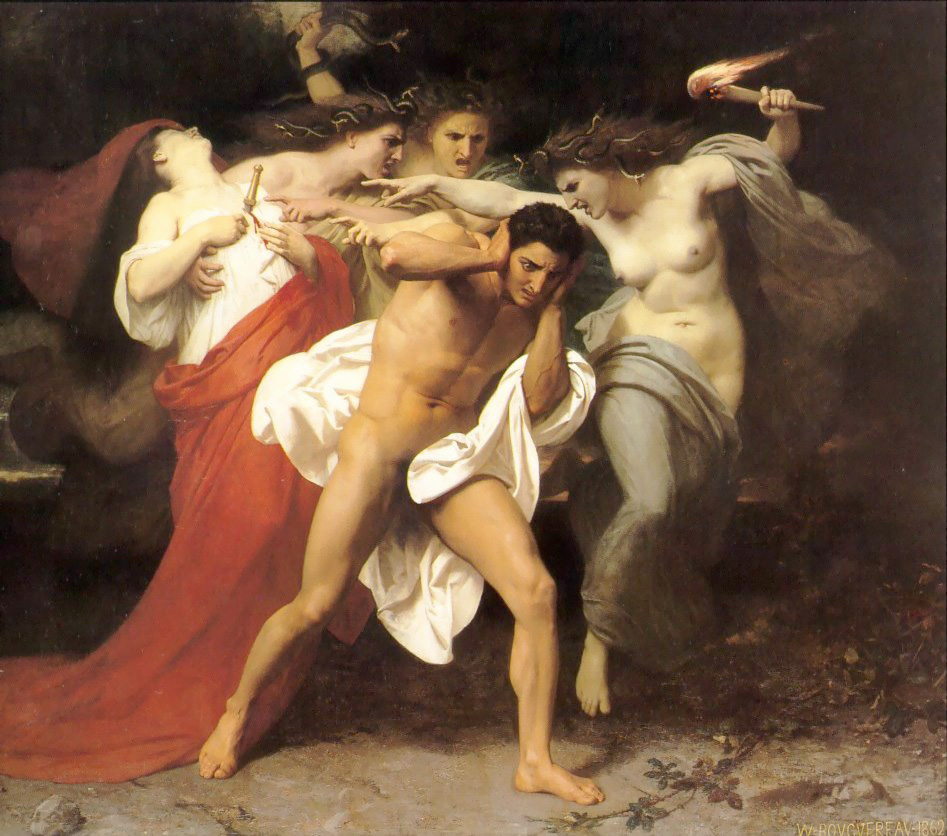I’m visiting my parents in Tennessee at the moment and have been looking through old unpublished poems by my father. Here’s a nice little lyric that caught my eye, which can function either as a critique of critics or of the inner critic that we carry inside. The poem is inspired by a Karl Shapiro ballad, Shapiro having been my father’s creative writing teacher at the University of Wisconsin.
The poem probably caught my eye because I’ve been teaching Tom Jones and listening to Henry Fielding complain about “reptile critics.” Fielding doesn’t have a problem with critics looking behind. Indeed, that’s their job. The problem is when they seek to become masters instead of scribes:
The critic, rightly considered, is no more than the clerk, whose office it is to transcribe the rules and laws laid down by those great judges whose vast strength of genius hath placed them in the light of legislators, in the several sciences over which they presided. This office was all which the critics of old aspired to; nor did they ever dare to advance a sentence, without supporting it by the authority of the judge from whence it was borrowed.
But in process of time, and in ages of ignorance, the clerk began to invade the power and assume the dignity of his master. The laws of writing were no longer founded on the practice of the author, but on the dictates of the critic. The clerk became the legislator, and those very peremptorily gave laws whose business it was, at first, only to transcribe them.
In this way, critics can be compared to historians or political theorists, who have a different job from those who make history or engage in politics. While critics have a useful role to play–they help us learn from the past–they don’t always have the best advice for those who are forging the future. By contrast, the actors on life’s stage must listen as though with only one ear, winnowing out the important lessons to be learned from the past but then moving on.
Scott Bates’ poem makes good use of the Orestes myth in this regard. Orestes’ glance back at Eurydice diverts his gaze from the future–it is as though he is questioning his artistic powers–and so sabotages his quest.
Orpheus, Jr.
By Scott Bates
“The critic sees no farther than behind.” – Karl Shapiro
Orpheus, Jr., sings off key
To boulders analytic;
He goes through Hell for Eurydice
Accompanies by a critic;
He leads her past the clutching dead,
Up chasms of the mind;
But when at last he leaps ahead,
The critic looks behind.
Added note – Intrigued by the Karl Shapiro line, I went searching for the poem, which is not to be found in his Collected Poems but did show up ain the digital archives of The New Yorker (June 5, 1948). The poem sounds personal, as though Shapiro had a particular bone to pick with someone. It may be unfair to critics in that it puts them fairly low on the scale of things, but it’s still pretty good. Unlike “Orpheus, Jr.,” however, this poem doesn’t have the vision of the poet and the critic potentially warring within the same individual:
Ballade of the Critic
By Karl Shapiro
The architect sees farther than the slums,
The man of God sees deep into the skies,
The maestro hears more music than the drums,
The judge sees what is just, unless he lies,
The lowliest politician prophesies.
Each peers some way ahead, but you will find
The critics sees no farther than behind.
The bud turns to the rose, the egg becomes
An ostrich or a wren. With what surprise
The meek evangelist converts the bums,
The lover reads the miracle of the eyes!
No longer need astronomers surmise;
But while the seed unfolds in every kind,
The critic sees no farther than behind.
Africa fries, Antarctica benumbs,
But science has an instrument to devise
The perfect climate for chrysanthemums,
Both poet and meteorolgist are wise
To cultivate for fragrance and for size.
Savor the fig and throw away the rind!
The critic sees no farther than behind.
L’Envoi
I mean just this. Your fingers are all thumbs,
Your thumbs are all in everybody’s pies,
Your pies are full of everybody’s plums.
All other men sometimes apostrophize
Some things, somehow. You merely analyze
The distant droppings of the higher mind.
The critic sees no farther than behind.


